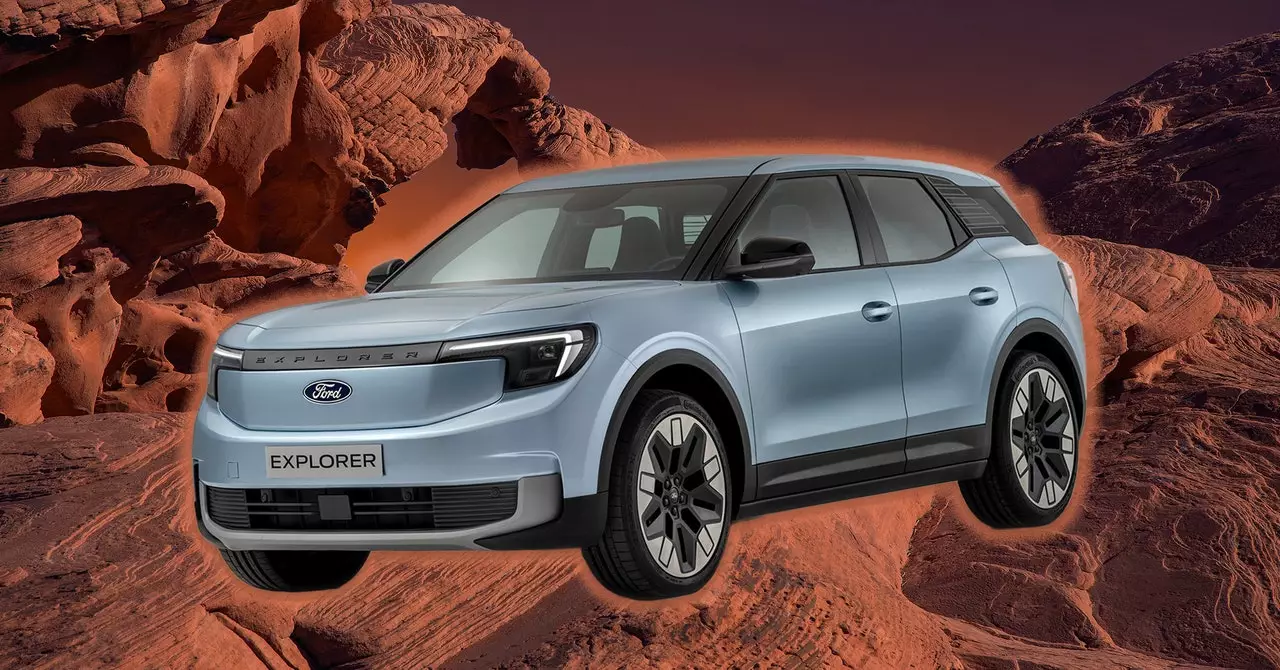The automotive industry is often characterized by complex partnerships and collaborations, a situation influenced significantly by market demands and the relentless pursuit of innovation. A case in point is the collaboration between Ford and Volkswagen (VW), evident in the development of vehicles such as the Ford Explorer and Capri. When questioned about the persistent shortcomings in VW’s control systems, Amko Leenart, Ford Europe’s director of design, offered insights that highlight the tension between design integrity and corporate strategy. Despite attempts to refine the user interface, he acknowledged the limitations imposed by their partnership: “It is what it is.” This admission underscores a critical truth in the automotive sector: decisions grounded in financial expediency can undermine the consumer experience.
Ford’s predicament serves as a stark reminder of how corporate decisions can adversely impact product quality. While the Explorer is generally regarded as a commendable electric vehicle (EV), the reliance on VW’s parts compromises its overall appeal. Despite its technological advancements, including an impressive range and a sleek design, the apparent inadequacies in the user experience can diminish consumer enthusiasm. It’s regrettable that products arising from such negotiating tables may falter because of compromises that fail to resonate with the end user.
Compounded by timing issues in market entry, both the Explorer and the Capri arrive in a landscape where competitors have capitalized on their momentum, presenting more innovative solutions. Ford’s apparent gamble on prioritizing range, coupled with only a modest approach toward development timelines, reveals a flawed strategy in a highly competitive market.
Moreover, the financial implications of such strategic choices are starkly illustrated when considering the premium pricing of these models, with the top-tier Explorer retailing at approximately £54,000 (around $68,500). This figure raises significant questions about the perceived value versus actual user experience. As consumers increasingly demand value for money alongside high-quality performance, this steep price tag could hinder sales, regardless of the vehicle’s technical prowess.
Jim Farley, Ford’s CEO, is undoubtedly aware of these dynamics, as evidenced in his reflective approach toward future EV development. It becomes evident that a more customized, Ford-centric solution might be crucial for navigating this crowded arena. The urgent need to comply with the UK’s Zero Emission Vehicle mandate by 2025 adds to the pressure, compelling the company to accelerate its transition toward emission-free offerings.
Currently, Ford’s attention is heavily vested in hybrid technology, yet the triumphs of models like the F-150 Lightning and Mach-E suggest a ripe opportunity for the automaker to pivot back to fully electric vehicles. Looking forward, there is hope that Ford can leverage its unique strengths to craft EVs that aren’t merely derivatives of existing platforms but are truly innovative in their own right. As the company stands at this crossroads, the focus should be on delivering accessible, high-quality EVs that embody the Ford brand’s legacy of reliability and innovation. In doing so, Ford can secure its position as a leader in the future of mobility, ensuring that it doesn’t just keep pace but sets the pace for the entire industry.

